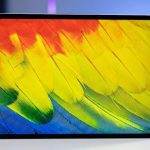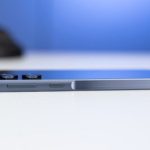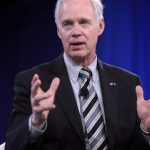
In June 1963, George Young and his family, including his kid brothers Malcolm and Angus, relocated to Australia and spent their first few months in the Villawood Migrant Hostel. It was there that George’s musical odyssey began.
‘To pass the time,’ George Young said of his relatively short stay at Villawood, ‘we’d go to the recreation hall, play table tennis, strum guitars and so on. That’s basically where The Easybeats started.’
George was rarely seen without his guitar. He didn’t know many people in this strange new place, and music was the perfect escape. One Australian friend he did make was Brian Lee, who lived at Chester Hill and attended high school with a Villawood kid named Dingeman ‘Dick’ van der Sluijs. (George briefly attended Chester Hill High, too.)
Lee would hang about the hostel’s rec room; one day, George had wandered in and found Lee trying his best to play ‘Pop Goes the Weasel’ on the guitar.
‘Did you pay money to learn that?’ George asked, stifling laughter.
George taught Lee the basics: twelve-bar blues, some simple rock songs, a few moves he’d cribbed from John Lennon when he’d watched The Beatles on TV.
‘We were great friends,’ Lee recalled. ‘I got into regular jamming with him.’
Charlie, a Polish friend of George and Brian’s, sometimes jammed with them.

They’d play a handful of songs over and over again, mostly covers that The Rolling Stones had recently made their own: ‘Around and Around’, ‘It’s All Over Now’ and ‘Under the Boardwalk’. When George played music with his family, the songs they favoured were more sentimental, such as ‘I Belong to Glasgow’ and Hank Williams’ ‘The Wild Side of Life’.
It was clear to Lee that George’s horizons were very narrow.
‘These lads [in the hostel] were so isolated,’ said Lee. ‘They didn’t have cars, a peer group, friends.’
So he began driving George to different places, introducing him to his mates at Parramatta and sometimes driving as far as the Northern Beaches, which was most likely the first time George had set foot on an Aussie beach. (There wasn’t much sand and surf at Villawood, only blazing sun and hungry insects.)
Lee took George to a dance at Hurstville to see a band called The Denvermen, whose guitarist had taught Lee – and George wasn’t impressed.
‘They’re out of tune,’ he told his new buddy.
One night, the three Gibb brothers – lanky Barry and twins Robin and Maurice – paid a visit to the hostel. The Gibbs were, like the Youngs, Ten Pound Poms, and had been ‘in country’ since 1958. They were living in the Sydney suburb of Lakemba and had recently signed a recording contract with Leedon Records; pop star Col Joye was their mentor.

There was a PA and microphone set up in the hostel’s rec room, and Barry tried to encourage his brothers to have a sing. But the twins were so short that they couldn’t reach the microphone, and they were distracted by the sports equipment and the other kids in the rec room, so Barry sang a few songs by himself on acoustic guitar. George introduced himself to Barry and, as the evening set in, they sat on the grass outside the hostel general store singing and strumming together. Neither could have imagined what lay ahead for them both.
By early 1964, George had left school and had worked as an apprentice panelbeater, a short-lived job arranged by his friend Brian Lee. George’s parents were keen on him getting a trade. His father knew what it was like to be unemployed, and ‘he didn’t want any of us to have trouble getting a job’, George would tell a reporter from Sydney’s Daily Mirror.
But the call of music was strong.
George was killing time at the hostel when he met Harry Vanda. He was a lanky, fair-haired seventeen-year-old whose family had arrived at Villawood around the same time as the Youngs, having emigrated from The Hague. He was an only child and, like George, had few, if any, friends. (Unlike the Youngs, who would settle permanently in Australia, Harry’s people moved back to the Netherlands after a couple of years.)
Harry was strumming a guitar, which was all the encouragement George needed to start talking with him. Or to try to talk with him, because Harry’s English was still very much a work in progress – most of his English came from the lyrics of British bands that he admired.
‘I think I’m getting sunstrike,’ Harry would exclaim.
‘You mean sunstroke,’ George would correct him.
‘It’s too hot for that,’ Harry would insist. ‘I think it’s sunstrike.’
George made a mental note to work on his new friend’s English.
This is an edited extract from Friday on My Mind by Jeff Apter, published August 4, Allen and Unwin
The post ‘Friday on my mind’: How the Easybeats’ George Young shaped Australian rock ’n’ roll appeared first on The New Daily.
Powered by WPeMatico






